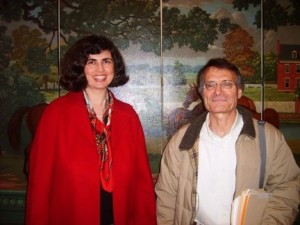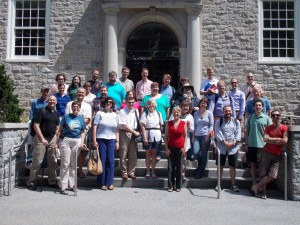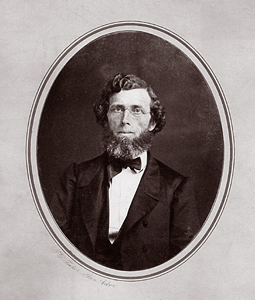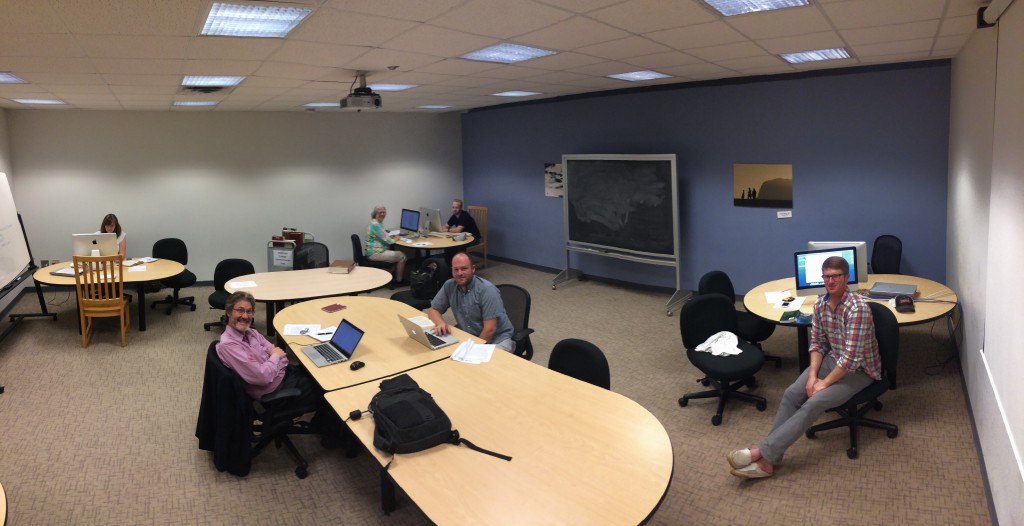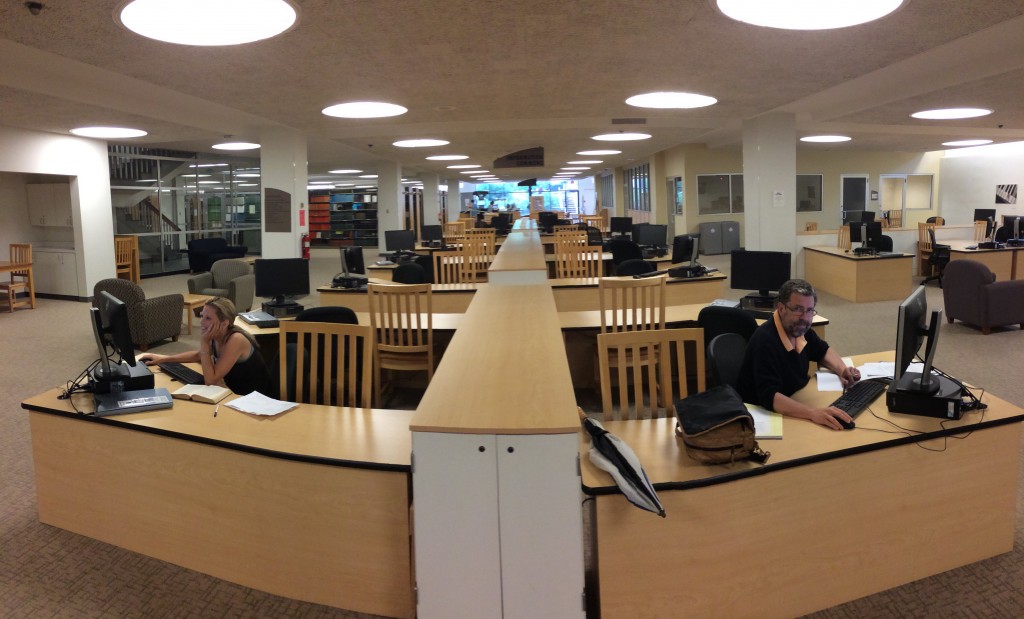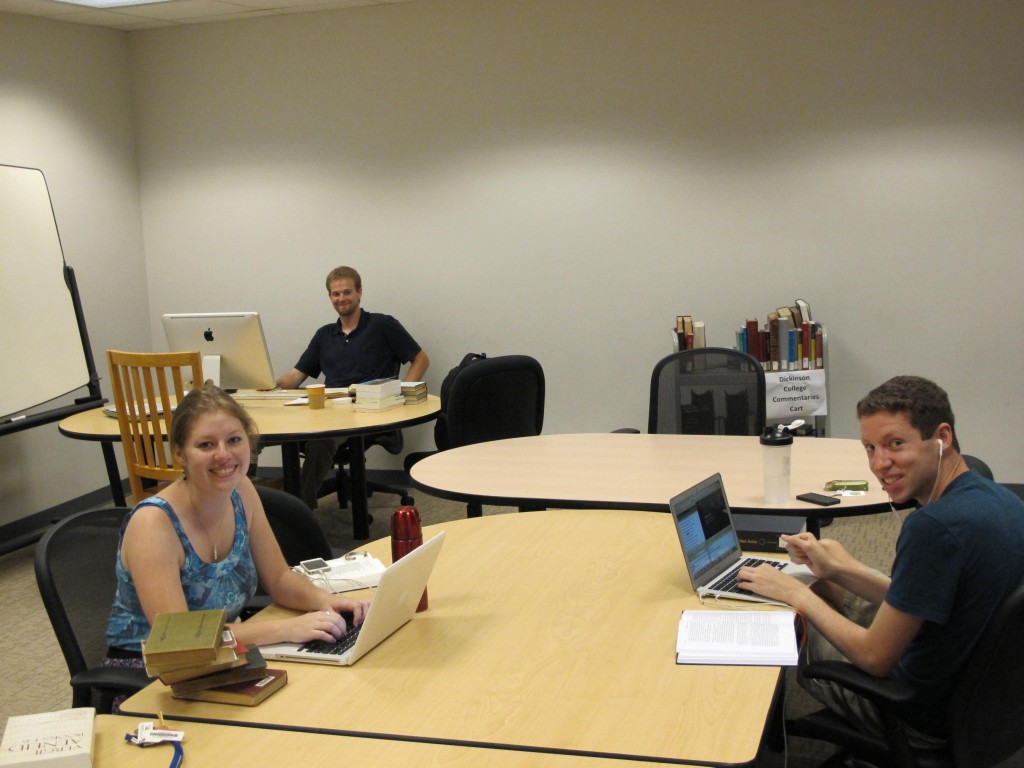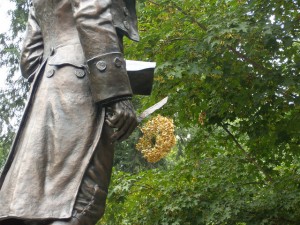 The Conventiculum Dickinsoniense is an immersion seminar in active Latin. It is specifically designed for all cultivators of Latin who wish to gain some ability to express themselves ex-tempore in correct Latin. A wide range of people can benefit from the seminar: professors in universities, teachers in secondary schools, graduate students, undergraduates, and other lovers of Latin, provided that anyone who considers applying has a solid understanding of the grammatical essentials of the Latin language. A minimum requirement for participation is knowledge of Latin grammar and the ability to read a Latin text of average complexity, even if using a dictionary often. But no previous experience in speaking Latin is necessary. Sessions will be aimed at helping participants to increase their ability to use Latin effectively in spoken discourse and to understand others speaking in Latin. The seminar will not merely illustrate how active Latin can be a useful tool for teachers, it will help participants to acquire for themselves a more instinctive command of the Latin language and consequently a more intimate relationship with Latin writings. After the first evening reception (in which any language may be spoken), Latin will be the language used throughout the seminar. Participants will be involved in intensive activity each day from morning until early evening (with breaks for lunch and mid-afternoon pauses). They will experience Latin conversations on topics ranging from themes in literature and art all the way to the routines and activities of daily life, and will enjoy the benefits of reading and discussing texts in the target language. Activities will involve both written and spoken discourse, both of which engage the active faculties of expression, and each of which is complementary to the other.
The Conventiculum Dickinsoniense is an immersion seminar in active Latin. It is specifically designed for all cultivators of Latin who wish to gain some ability to express themselves ex-tempore in correct Latin. A wide range of people can benefit from the seminar: professors in universities, teachers in secondary schools, graduate students, undergraduates, and other lovers of Latin, provided that anyone who considers applying has a solid understanding of the grammatical essentials of the Latin language. A minimum requirement for participation is knowledge of Latin grammar and the ability to read a Latin text of average complexity, even if using a dictionary often. But no previous experience in speaking Latin is necessary. Sessions will be aimed at helping participants to increase their ability to use Latin effectively in spoken discourse and to understand others speaking in Latin. The seminar will not merely illustrate how active Latin can be a useful tool for teachers, it will help participants to acquire for themselves a more instinctive command of the Latin language and consequently a more intimate relationship with Latin writings. After the first evening reception (in which any language may be spoken), Latin will be the language used throughout the seminar. Participants will be involved in intensive activity each day from morning until early evening (with breaks for lunch and mid-afternoon pauses). They will experience Latin conversations on topics ranging from themes in literature and art all the way to the routines and activities of daily life, and will enjoy the benefits of reading and discussing texts in the target language. Activities will involve both written and spoken discourse, both of which engage the active faculties of expression, and each of which is complementary to the other.
Prof. Milena Minkova, University of Kentucky
Prof. Terence Tunberg, University of Kentucky
We can accept a maximum number of 40 participants. Deadline for applications is May 1, 2015. The participation fee for each participant will $300. The fee includes lodging in a single room in campus housing (and please note that lodging will be in a student residence near the site of the sessions), two meals (breakfast and lunch) per day, as well as the opening dinner, and a special cookout at the Dickinson farm for one night. That also covers the facilities fee, which allows access to the gym, fitness center, and the library, as well as internet access. The $300 fee does not include the cost of dinners (except for the opening dinner and the cookout at the Dickinson farm), and does not include the cost of travel to and from the seminar. Dinners can easily be had at restaurants within walking distance from campus. Please keep in mind that the participation fee of $300, once it has been received by the seminar’s organizers, is not refundable. This is an administrative necessity.
For more information and application instructions write to:
Professor Terence Tunberg /
email: terence.tunberg@gmail.com
